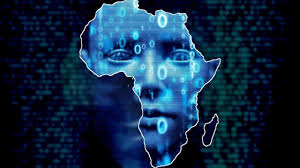By Kadiri Abdulrahman, News Agency of Nigeria (NAN)
The world, no doubt, is increasingly becoming Artificial Intelligence (AI)-driven, with all sectors integrating AI to enhance efficiency.
At the recently concluded 2025 Annual Meetings of the International Monetary Fund (IMF)/World Bank Group, Artificial Intelligence (AI) was a central topic as officials acknowledged its potential for significant global productivity growth.
The IMF presented new analyses on AI’s economic impact and a country-readiness index, while also focusing on the technology’s implications for financial stability and jobs.
Stakeholders, nonetheless, warn of the risks it poses, including exacerbating inequality and creating market instability.
The Managing Director of the IMF, Kristalina Georgieva, said that advancements in AI offered substantial benefits.
Georgieva described AI as a technological revolution that could jumpstart productivity, boost global growth and raise incomes around the world.
She, however, said that there was need to be cautious about the technological advancement as it could also replace jobs and deepen inequality.
According to her, countries around the world lack the regulatory and ethical foundation to deal with the rapid advent of artificial intelligence.
She said that the rapidly advancing technological revolution unleashed by AI was dominated by advanced economies, with the U.S. having the lion’s share.
“Some emerging markets also have capability in the sector, including China, but developing countries are lagging far behind and less able to tap into the potential of the technological revolution.
“The gap between advanced economies and low-income countries on readiness for AI is growing and making it harder and harder for developing countries to catch up,” she said.
She urged developing countries and emerging markets to focus on the first prerequisite for success by expanding digital infrastructure and skills.
The President of the World Bank, Ajay Banga, said that the reality of AI helping developing countries fast-track digitisation was not clear.
Banga said that developing countries in Africa were already in a race to leapfrog using AI to tackle challenges in fintech and agriculture, among other things.
“Everybody is talking about big AI; what does big AI need to be successful? It needs computing power, lots of it; it needs electricity, lots of it; it needs data, lots of it,” he said.
Driss Bengeloune, a manager of digital innovation and solutions at MTN Benin, said that Africa could leapfrog with AI the same way it did with mobile money.
“What made mobile money such an African innovation is that it emerged out of necessity, in a context where, in Africa, we do not have the same access to traditional banking.
“So, I believe that AI will be the same in Africa; we can use AI to resolve some local problems that we have.”
Bengeloune, however, said that infrastructure and data were big areas of need for the African continent compared to Europe and America.
“But African societies are beginning to take AI seriously; governments, universities, private actors are investing and experimenting at scale,” he said.
The founder of the Cyber Africa Forum, Franck Kié, said that greater things were on the horizon with African governments moving to activate strategies around digital transformation.
“While I understand the doubts and concerns that the president of the World Bank may have, I always try to remain optimistic.
“Access to electricity, training in human capital and investment in infrastructure in Africa is actually going in the right direction and has been increasing more and more over the past few years,” he said.
The Chairman of UBA Group, Tony Elumelu, said that AI could drive Africa’s next major transformation, revolutionising sectors such as healthcare, education and agriculture.
Elumelu said that AI held immense potential to create meaningful impact where it is most needed across the continent.
He, however, said that it was achievable only if inclusive systems, access to capital and digital skills were prioritised.
“Artificial intelligence can be the next great leap in healthcare, where diagnostic tools reach remote clinics; in education, where content becomes accessible in local languages.
“It can also help in agriculture, where data helps small farmers improve yields.”
He said that Africa’s digital transformation must be centred on people, not just technology or productivity metrics.
“When we speak of productivity in the digital age, we are really talking about people. Productivity is not only about output per worker, it is about opportunity per person.
“We have something the world envies: youth, creativity, and a hunger to build,” he said.
He highlighted the continent’s pressing issues, including energy poverty and digital infrastructure gaps, noting that more than 50 per cent of Africa’s population still lacks access to electricity.
The Director-General of National Information Technology Development Agency (NITDA), Kashifu Abdullahi, said that the country was strategically positioning itself to lead Africa’s digital transformation.
Abdullahi said that Nigeria was taking the lead through the adoption of AI, renewable energy and inclusive technological innovation.
He said that the Federal Government was committed to driving rural prosperity by leveraging technology and renewable energy as catalysts for national growth.
“Renewable energy is not the end goal; it is an enabler, a catalyst for everything else.
“When there is power, connectivity follows, and when connectivity arrives, it ignites every other transformation.”
He said that the focus of the Federal Government was not just on addressing current challenges in energy access but also on shaping the country’s technological future through AI and other emerging technologies.
“AI is going to be more powerful than electricity; it will transform everything we do, from agriculture to finance, education and health.’’
The NITDA boss said that the agency had established the National Centre for Artificial Intelligence and Robotics.
He said that NITDA also developed a National AI Strategy aimed at building sustainable, responsible and inclusive AI systems that foster national development.
He said that the vision was to create a digitally empowered nation that drives inclusive economic growth through innovation.
“NITDA’s strategic roadmap and action plan is anchored on eight pillars, including digital literacy, innovation, infrastructure, and research ecosystems.
“They will focus on technologies such as AI, blockchain, robotics, additive manufacturing, Internet of Things (IoT), and unmanned Aerial Vehicles (UAVs),” he said.
He said that NITDA had built more than 220 Digital Economy Centres across the country since 2023, in its efforts to bridge the digital divide.
As the AI revolution rages across the globe, stakeholders are calling on the authorities in Nigeria to live up to the challenge and take the lead in enabling digital transformation within Africa.(NANFeatures)
***If used, please credit the writer and the News Agency of Nigeria.












